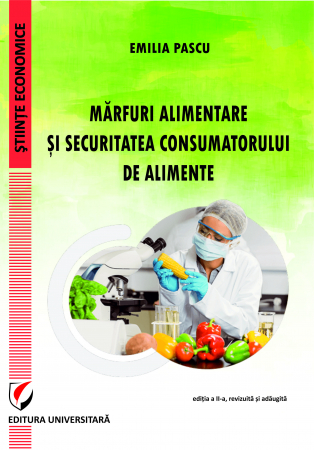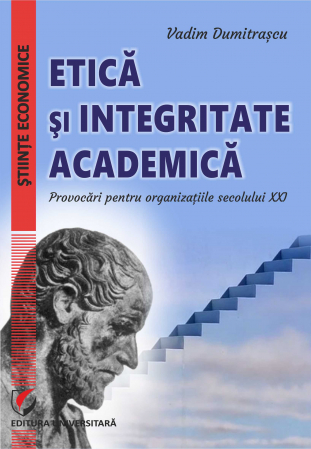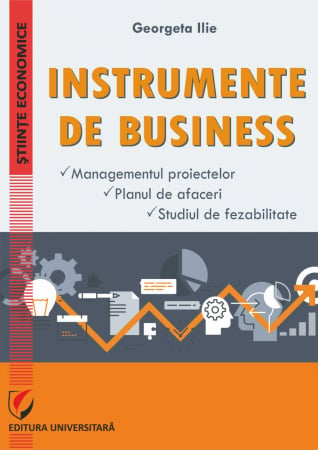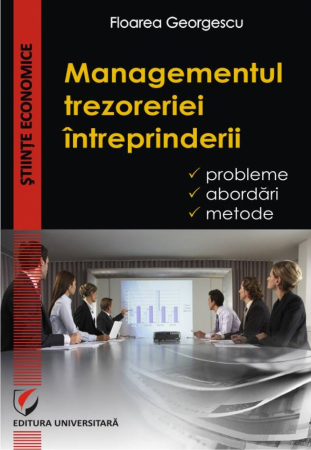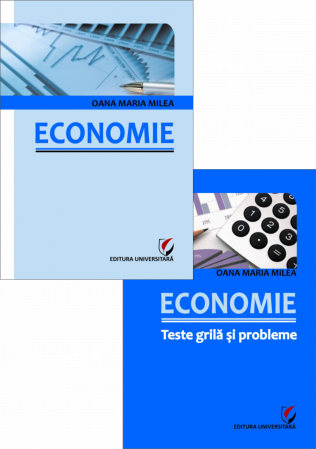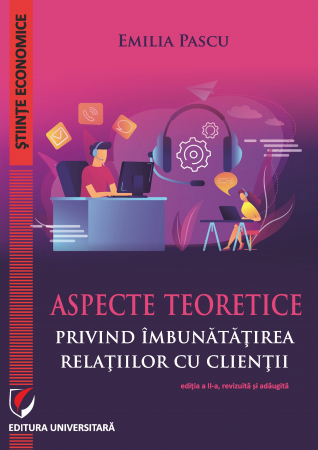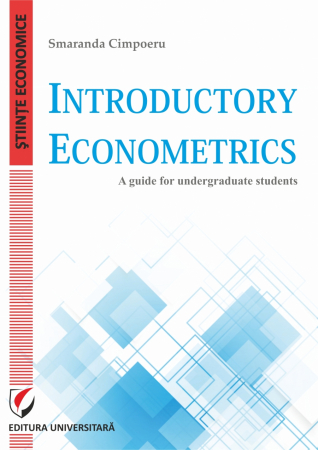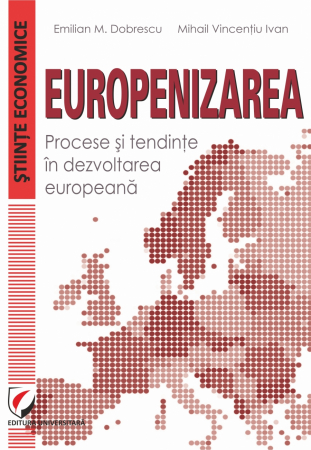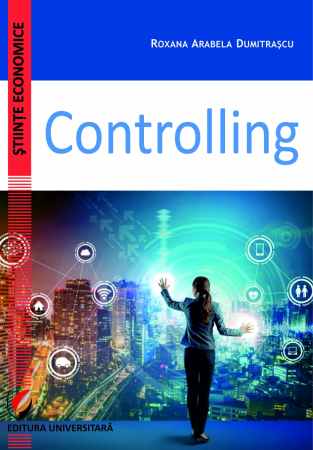Publisher: Editura Universitara
Author: Carmen Valentina Radulescu
ISBN: 978-606-28-1253-9
DOI: https://doi.org/10.5682/9786062812539
Publisher year: 2021
Edition: I
Pages: 206
- Description
- Download (1)
- Authors
- Content
- More details
- Where to find it
- Reviews (0)
Sustainable development has gained an almost unanimous acceptability for guiding social progress, although it involves large-scale, interdependent and very varied changes, correlated with the contrasting states of the nations of the world. From the epistemological point of view, the societal challenges of sustainable development have as common denominator the multidisciplinary problematization oriented by the urgent need to change tendencies whose convergence means improper configurations for social progress, imposing the need to reformulate the analysis models so that they allow the integrated approach. and phenomena, including through the use of scientific interpretations from different fields of knowledge. The boundaries of knowledge are permeable, and the prevalence of the economic dimension in modeling the material and energy flows of the global ecosystem is reflected in the integration of economic interpretation in accordance with its high potential for influence.
The integration of sustainability in business is a personal and constant concern that began with the elaboration of the doctoral thesis. At that time, the research focused on agricultural holdings, but the need to cross sectoral boundaries became increasingly clear, as other activities and, in general, business administration in relation to sustainable development were investigated. In order to continue the involvement in the development of knowledge in this direction, it was considered necessary to carry out a study (concretized in this book) to organize the impressive volume of information on this topic in order to clarify the relationship between entrepreneurship, business strategies, sustainability and innovation.
This course systematizes information on the implications of sustainable development for entrepreneurship and business administration, demonstrates and exemplifies how sustainability, as a result of innovation, can become a source of competitive advantage for entrepreneurs. In this context, we paid special attention to sustainable innovation, which investigated the conditions for its activation by analyzing and evaluating elements of innovation management.
-
Entrepreneurship in Agri-Food and Environmental Systems
Download
INTRODUCTION / 9
CHAPTER 1
BASIC NOTIONS THAT ANY ENTREPRENEUR SHOULD KNOW / 13
1.1. A SHORT INCURSION IN THE APPEARANCE OF THE RIAT ENTREPRENO / 13
1.2. ESSENTIAL CONCEPTS USED IN ENTREPRENEURSHIP / 21
1.3. ELECTRONIC COMMERCE - THE FUTURE OF BUSINESS IN THE INTERNET ERA / 28
CHAPTER 2
IDENTIFYING BUSINESS OPPORTUNITIES / 31
2.1. FROM IDEA TO BUSINESS / 31
2.2. TRANSFORMING THE OPPORTUNITY INTO BUSINESS. EXPLORING THE AGRI-FOOD AND ENVIRONMENTAL MARKET / 37
2.3. MARKET POSITIONING-VALUATION OF COMPETITIVE ADVANTAGE / 45
2.4. MARKETING MIX OR THE RIGHT MARKETING RECIPE FOR YOUR BUSINESS / 50
CHAPTER 3
UNDERSTANDING AND ADMINISTRATING LAUNCH COSTS, FIXED AND VARIABLE / 59
3.1. LAUNCH INVESTMENT, FIXED AND VARIABLE COSTS / 59
3.2. DIRECT COSTS AND INDIRECT COSTS / 62
3.3. USE OF ACCOUNTING RECORDS FOR TRACKING FIXED AND VARIABLE COSTS / 65
CHAPTER 4
SUSTAINABLE ENTREPRENEURSHIP - A GLOBAL IMPERATIVE / 68
4.1. IMPLICATIONS OF SUSTAINABLE DEVELOPMENT FOR BUSINESS ADMINISTRATION / 68
4.1.1. SUSTAINABLE BUSINESS - CONCEPTUAL BOUNDARIES / 70
4.2. BUSINESS SUSTAINABILITY STRATEGIES / 81
4.3. MANAGEMENT TOOLS FOR SUSTAINABLE BUSINESS ADMINISTRATION / 91
4.3.1. MANAGEMENT SYSTEM / 91
4.3.2. CORPORATE SOCIAL RESPONSIBILITY (CSR) / 95
4.3.3. COMMUNICATION STRATEGY / 104
4.3.4. METHODS OF ASSESSING SUSTAINABLE PERFORMANCE / 109
4.4. SUSTAINABLE INNOVATION - SOURCE OF COMPETITIVE ADVANTAGE / 118
4.4.1. INNOVATION-SUSTAINABILITY RELATIONSHIP / 119
4.4.1.1. TYPOLOGY OF INNOVATION / 120
4.4.1.2. INTEGRATING INNOVATION (SUSTAINABLE) INTO BUSINESS / 124
4.4.1.3. SUSTAINABILITY AS A DETERMINANT OF INNOVATION / 125
4.4.2. COMPETITIVENESS-SUSTAINABILITY RELATIONSHIP / 129
4.4.3. THE STRENGTHS OF COMPETITIVENESS AND SUSTAINABILITY / 145
4.4.3.1. SUSTAINABLE INNOVATION AT BUSINESS LEVEL / 153
4.4.3.2. SOCIAL AND SOCIETY SUSTAINABLE BUSINESS MODELS / 154
4.4.3.3. "GREEN" SUSTAINABLE BUSINESS MODELS / 157
4.5 INNOVATION MANAGEMENT ELEMENTS APPLICABLE TO SUSTAINABILITY ORIENTATION / 167
4.5.1. BOUNDARIES OF THE INNOVATION SPACE / 168
4.5.2. SUSTAINABILITY AND STAGES OF INNOVATION MANAGEMENT / 170
4.5.3. OPEN INNOVATION ECOSYSTEMS AND SUSTAINABILITY / 174
4.5.4. MINIMUM REQUIREMENTS FOR SUSTAINABLE INNOVATION MANAGEMENT / 180
BIBLIOGRAPHY / 187
At the turn of the millennium, we are at the forefront of change to become more responsible for systems that influence economic activity and human well-being.
Worrying trends that constantly fuel the need for change are the continuing degradation of ecological support systems, which demonstrate increasing anthropogenic pressure on climate, water resources, environmental quality, forest and other renewable resources, biodiversity, environmental capacity to absorb pollution and waste, and increasing development gaps, persistent extreme poverty and food insecurity for billions of the world's population, limited access to basic services and increasing migratory pressure.
The challenge of finding solutions to development gaps and the conflict between human activities and natural systems has been accepted by many researchers, with scientific results being a particularly rich knowledge base that is valued by developing global policies on sustainable development. .
Sustainable development has gained an almost unanimous acceptability for guiding social progress, although it involves large-scale, interdependent and very varied changes, correlated with the contrasting states of the nations of the world. From the epistemological point of view, the societal challenges of sustainable development have as common denominator the multidisciplinary problematization oriented by the urgent need to change tendencies whose convergence means improper configurations for social progress, imposing the need to reformulate the analysis models so that they allow the integrated approach. and phenomena, including through the use of scientific interpretations from different fields of knowledge. The boundaries of knowledge are permeable, and the prevalence of the economic dimension in modeling the material and energy flows of the global ecosystem is reflected in the integration of economic interpretation in accordance with its high potential for influence.
The integration of sustainability in business is a personal and constant concern that began with the elaboration of the doctoral thesis. At that time, the research focused on agricultural holdings, but the need to cross sectoral boundaries became more and more clear, as other activities were investigated and, in general, business administration in relation to sustainable development. In order to continue the involvement in the development of knowledge in this direction, it was considered necessary to carry out a study (concretized in this book) to organize the impressive volume of information on this topic in order to clarify the relationship between entrepreneurship, business strategies, sustainability and innovation.
This course systematizes information on the implications of sustainable development for entrepreneurship and business administration, demonstrates and exemplifies how sustainability, as a result of innovation, can become a source of competitive advantage for entrepreneurs. In this context, we paid special attention to sustainable innovation, which investigated the conditions for its activation by analyzing and evaluating elements of innovation management.
Personally, I consider that the students from Romania, in general, and those from the Academy of Economic Studies from Bucharest, in particular, need such a course that, to impel them to capitalize on the various existing opportunities and, to understand, what it means to be a Romanian entrepreneur, to contribute to the well-being of the society in an equitable way towards all the holders of interests and, especially, towards the natural environment.
Customer Support Monday - Friday, between 8.00 - 16.00
0745 200 718 0745 200 357 comenzi@editurauniversitara.ro
6359.png)
![Entrepreneurship in Agri-Food and Environmental Systems [1] Entrepreneurship in Agri-Food and Environmental Systems [1]](https://gomagcdn.ro/domains/editurauniversitara.ro/files/product/large/radulescu-valentina_antreprenoriat-_bt-3075-1268.jpg)
